Top Ten Moments from Hillel International’s Israel Summit East 2023
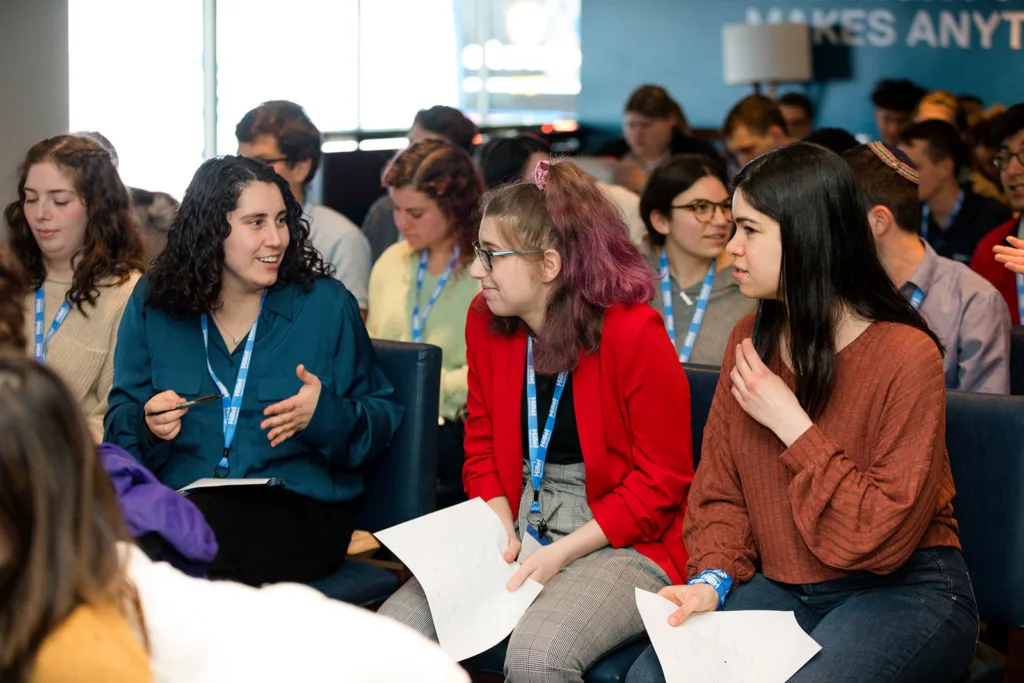
Over Presidents’ Day weekend, more than 250 Jewish student leaders gathered at Gillette Stadium in Foxborough, Massachusetts (home of the New England Patriots!) to participate in Hillel International’s annual Israel Summit East.
The Israel Summit, which followed a similar event on the West Coast in January, brought together an additional 250 Jewish student leaders from across North America to engage in high-level workshops about addressing antisemitism, opportunities to hear from world-class speakers, and training programs and masterclasses focused on in-depth Israel education. Here are the top 10 highlights from an action-packed 48 hours in Foxborough!
1. Congressman Ritchie Torres Encourages Support for Israel at the Highest Level
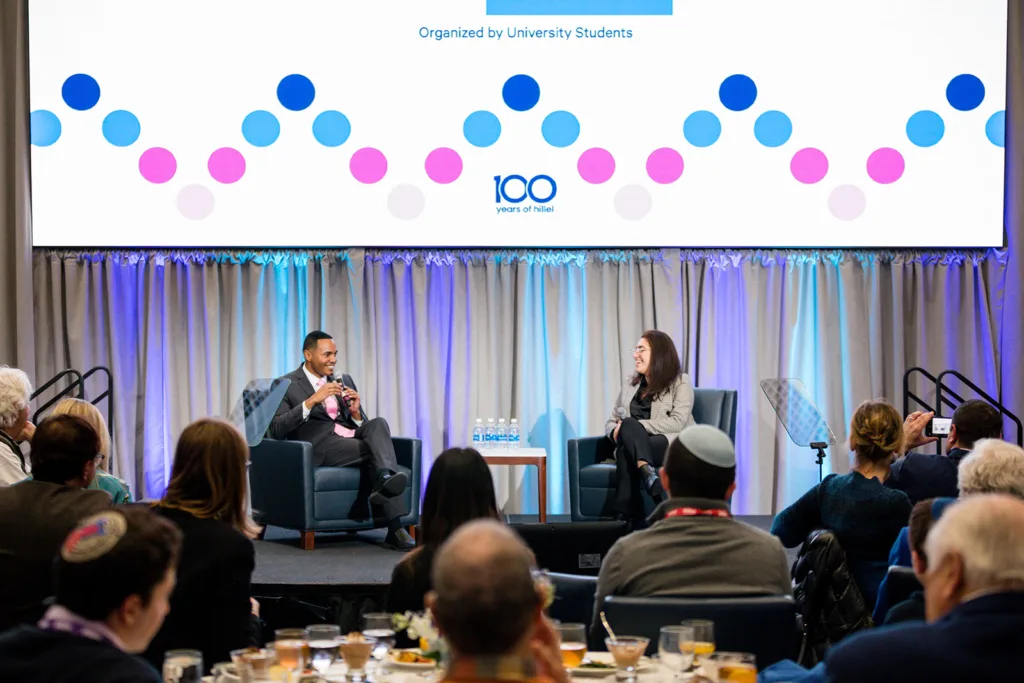
At a time when the relationship between the Black and Jewish communities is more complex than ever, Congressman Ritchie Torres (D-NY) embodies a model of passionate and supportive leadership for both communities. In an inspiring conversation with Jessica Yeroshalmi, Co-Chair of the Hillel International Student Cabinet, Congressman Torres spoke about his life-changing experiences traveling through Israel, as well as his ongoing and outspoken support of the Jewish community and American-Israeli relations.
“In 2014,” Torres said, “I was invited to go on a delegation to Israel. It was a life-changing experience to go to the Western Wall, to Yad Vashem, to Masada. As I learned about the oppression against the Jewish community — the destruction of the Temple, the pogroms in Russian, the Holocaust — all of that crystalized for me the necessity of a Jewish state. From that moment on, ‘Never Again’ meant that never again would the Jewish community fall victim to genocide and ethnic cleansing. I found that vision to be morally compelling. And I’ve been a passionate advocate ever since.”
2. Robert Kraft Calls Upon Global Community to Stand Up to Antisemitism
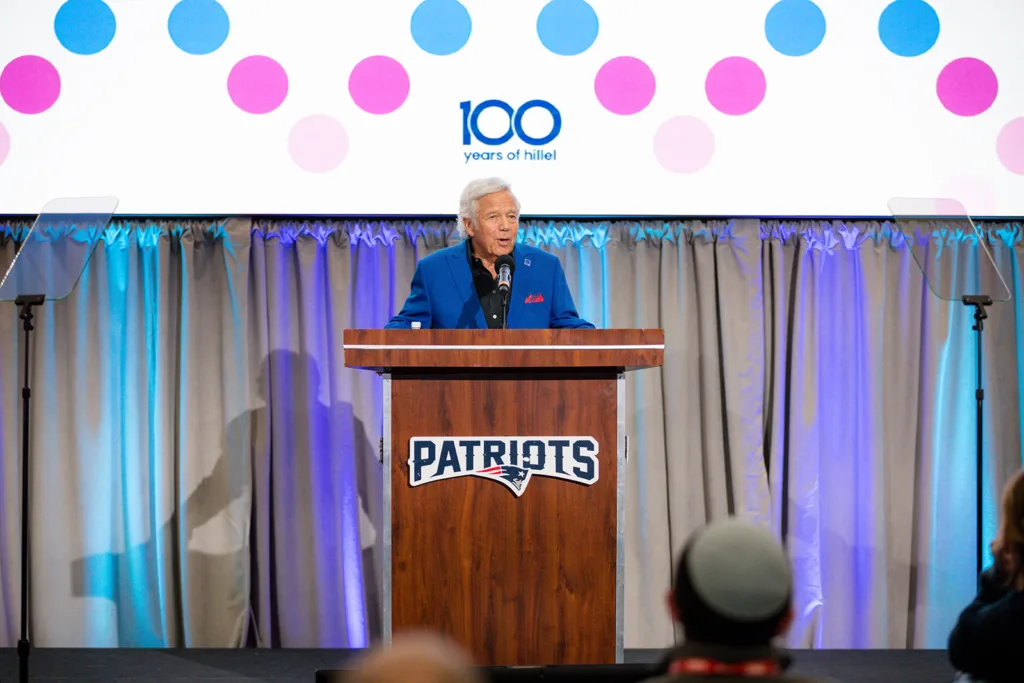
Robert Kraft, Chairman and CEO of the Kraft Group, created the Foundation to Combat Antisemitism in 2019 to address the alarming rise in antisemitism in the U.S. and globally. At the Israel Summit, he welcomed the student leaders at the opening plenary, and re-emphasized his commitment to countering antisemitism on college campuses, and beyond. “When we talk about fighting hate and injustice in the world, we need to make sure antisemitism is included,” Kraft said. “We must do everything in our power to fight the rise in anti-Jewish hatred and the threat it poses to the Jewish people and the state of Israel.”
3. Role Models Who Speak up for Israel Make a Difference
Student leaders are not alone in the campus conversation around Israel. Award-winning author, actress, and producer Noa Tishby, and Amanda Berman, Founder and CEO of Zioness, offered insight and reflections for students about Israel and antisemitism. “Israel and Jews are ‘Patient Zero’ for online hate,” Tishby said. Recently named Israel’s Special Envoy for Combating Antisemitism and the Delegitimization of Israel, Tishby and Berman spoke thoughtfully on the need for support for student leaders from inspiring pro-Israel role models.
4. When University Leaders Support Jewish Students, Campuses are Safer and More Inclusive
Dr. Christina Paxson, President of Brown University, is a strong ally for Jewish students at Brown. At the Israel Summit, she spoke with student leaders about the importance of maintaining a free exchange of ideas on campus while also protecting the safety and voices of Jewish students. “We need to talk about antisemitism in and out of classrooms,” Dr. Paxson said. “We need to host lectures, and seminars, and write op-eds to ensure that antisemitism does not occur on our campuses. Racism and antisemitism in this country have common roots. And we need to weed them both out.”
5. Student Leader Collaboration Generates Excitement and Solidarity
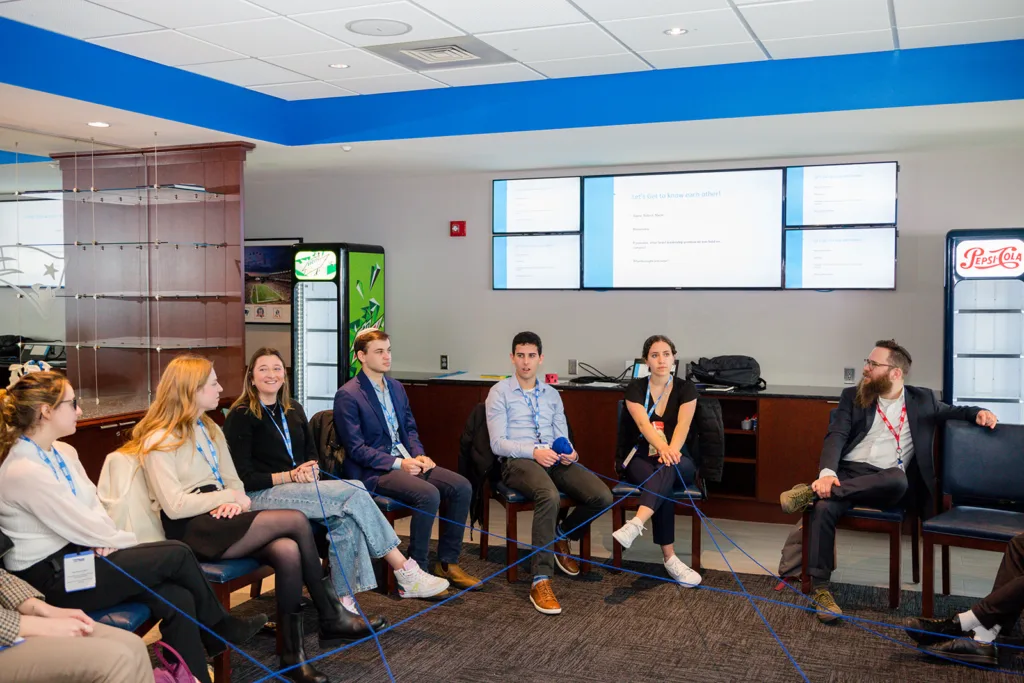
One of the main purposes of the Israel Summit was to give Jewish student leaders from across North America the opportunity to support each other, share best practices, and collaborate on new initiatives. From the plenary stage at the Summit, many students spoke about the importance of organizations like Hillel as the bedrock of the supportive campus community that Jewish students need to thrive, regardless of where they go to school.
Gali Polichuk, a student at the University of Florida and a member of the Hillel International Student Cabinet, spoke about her experience and the culture shock of moving from Mexico to the United States for college. “When I came to the U.S. two years ago, I had no community. Today that has turned around completely, and I have Hillel to thank for that. Even though I didn’t know anyone on my campus at first, I knew there was a home for me at Hillel. For me, Hillel is a safe place where I can learn and discover my Mexican-Jewish heritage,” said Polichuk.
6. Campus Legal Experts Help Jewish Students Understand Their Rights
Balancing the principles of free speech with the commitment to safety and inclusion for all students, including Jewish students, can be a difficult endeavor for university administrations. And many students are unsure about how to exercise their rights for fair treatment and a safe space free from hate, antisemitism, and harassment in the classroom, and what happens when those rights are under attack.
Mark Rotenberg, Vice President of University Initiatives and Legal Affairs at Hillel International, introduced student leaders to several strategies that can be effective in navigating complex situations, and gave concrete examples of when conduct in the classroom crosses the line between freedom of speech to infringing upon the legal rights of students.
7. Examining the Complex and Shifting Geopolitics of the Middle East
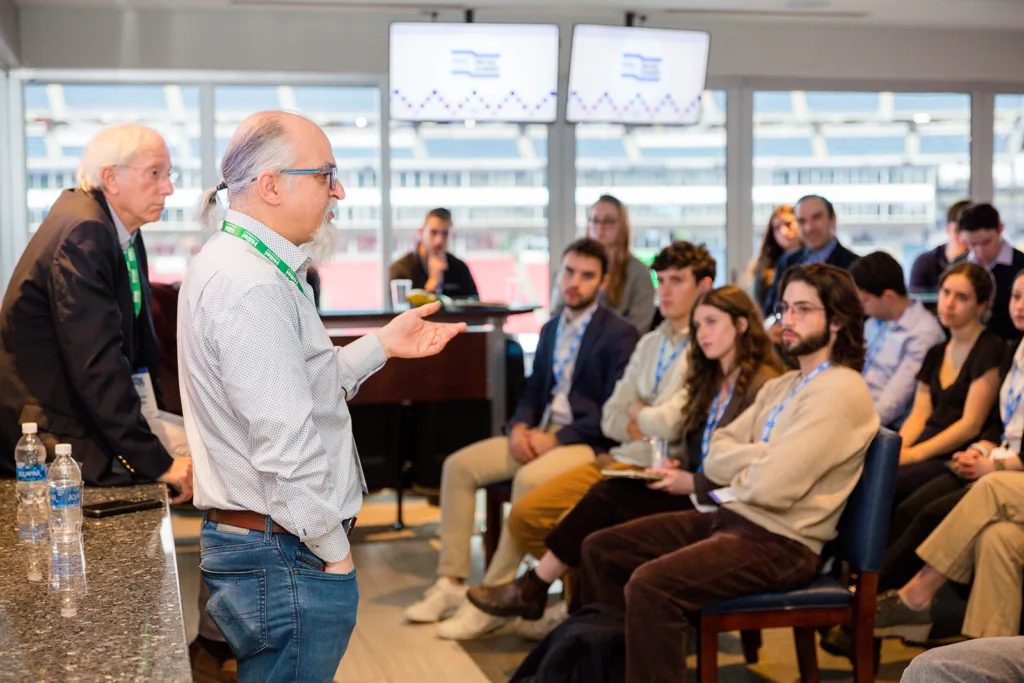
Ambassador Dennis Ross and Ghaith al-Omari of The Washington Institute for Near East Policy gave an in-depth lecture to a packed room focused on the nuanced and ever-shifting geopolitics of the Middle East, specifically as it relates to Israel. The lecture covered the groundbreaking Abraham Accords and new economic agreements made between Israel and other Middle Eastern countries. Student leaders found the education offered in this session to be crucial to broadening their understanding of the complex nature of the Middle East, and its evolution over the past five years.
8. Examining the Link Between Antisemitism and Other Forms of Hate
Bret Stephens is a Pulitzer Prize-winning journalist who previously served as the Editor-in-Chief of the Jerusalem Post, and now works as a columnist for the New York Times. From the main stage at the Israel Summit, Stephens described the role that the Jewish people have historically played in countering not just antisemitism, but all forms of hate. He encouraged the student leaders in the room to stand up against antisemitism as a way of also standing up for democracy. Stephens said, “When you oppose antisemitism, you’re not just speaking for Jewish people. You’re speaking for anyone who supports the democratic and human freedoms that we have today.”
9. Prioritizing Diversity, Equity, and Inclusion in Jewish Spaces
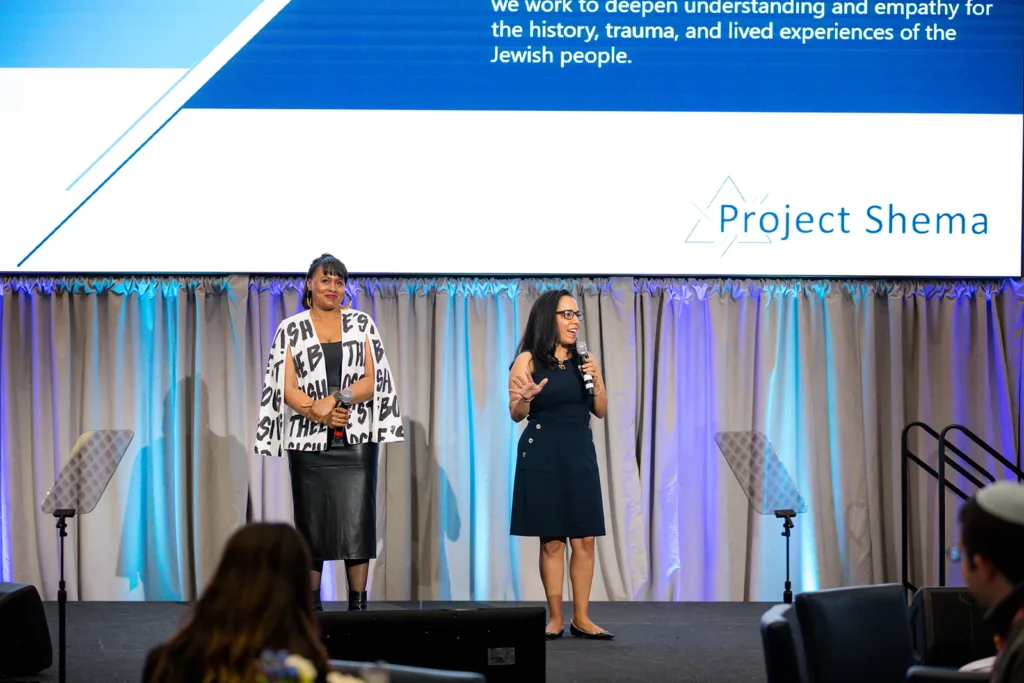
College and university communities strive to be welcoming and inclusive spaces for all kinds of students, including Jewish students and students who are passionate about supporting Israel. April Powers, co-founder of Jewbian Princess and Director of Diversity, Equity, and Inclusion (DEI) at Project Shema, spoke with students about the importance of creating inclusive Jewish spaces in progressive circles. “I’m a Black Jew. A great-granddaughter of slaves in this country. A Progressive. And a Zionist. I want you to know that I hear you, I see you, I know what you’re going through, and I understand. I’m fully committed to ensuring that DEI professionals incorporate addressing antisemitism into their work going forward.”
10. A Hope for Peace: Understanding the Complexities of the Peace Process
David Makovsky, Ziegler Distinguished Fellow at The Washington Institute for Near East Policy, took students inside the current state of the peace process in the Middle East. He also walked through the potential for peace in the future and what avenues might lead to the fulfillment of that long-held hope.
Want to read even more about the Israel Summit East? Check out this piece in eJewish Philanthropy.
Hillel’s Israel Leadership Network
is generously supported by:
Foundation to Combat Antisemitism
Goldring Family Foundation
Jeffrey M. Talpins Foundation
Mosaic United
William Davidson Foundation
Woldenberg Foundation
And thank you to our LA and Boston Summit Sponsors:
Alan & Annette Leve Family Foundation, Combined Jewish Philanthropies, Jewish Community Foundation of Los Angeles,
The Abby & Douglas Brown Family Foundation and
The Paul E. Singer Foundation